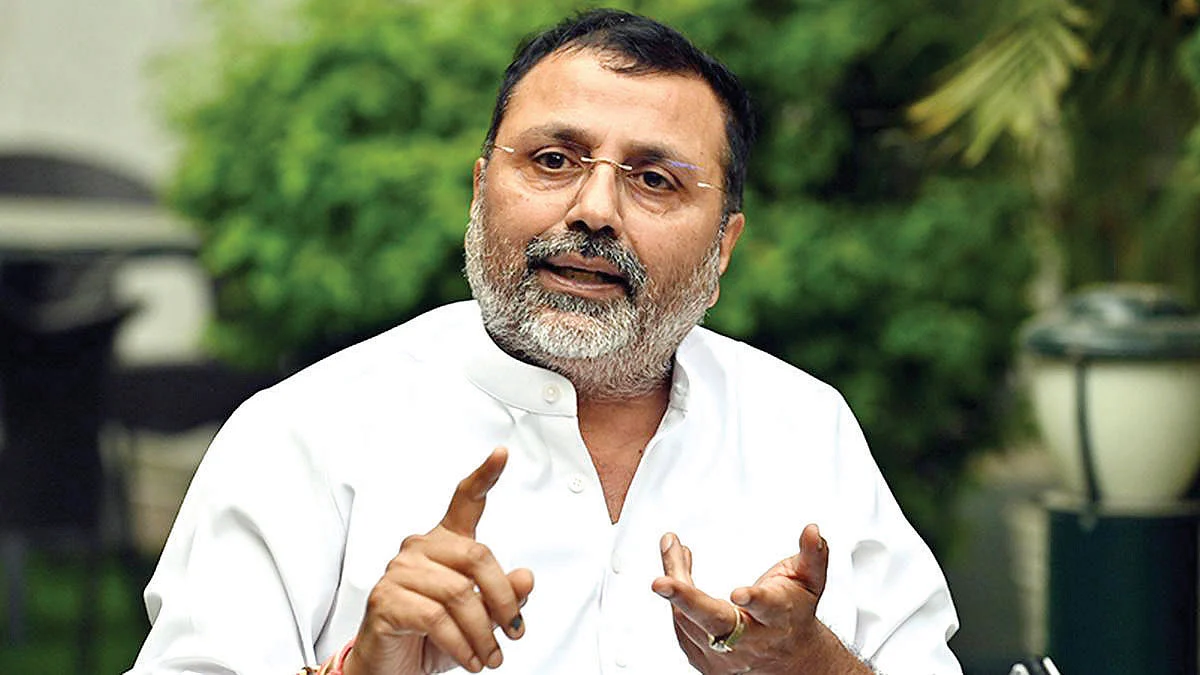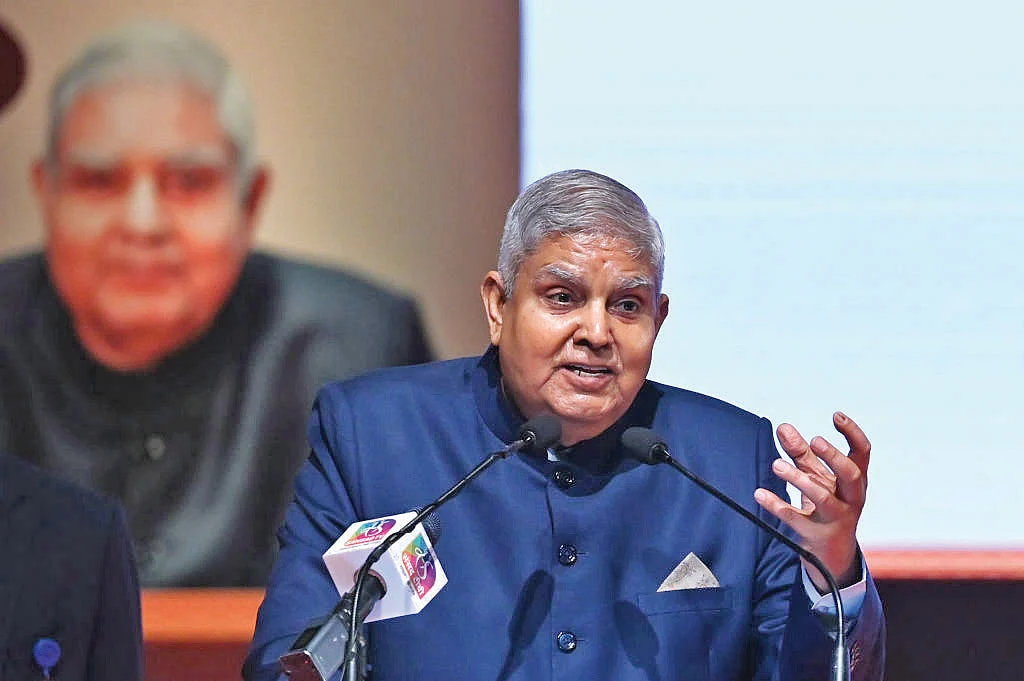It’s an all-out war on the judiciary
BJP MP Nishikant Dubey’s attack on the SC and CJI Sanjiv Khanna is a concerted attempt to tame a judiciary not quite pliant enough

BJP MP Nishikant Dubey’s recent attack on the Supreme Court and Chief Justice of India (CJI) Sanjiv Khanna is no mere outburst — it is part of a concerted attempt by the ruling party to tame a judiciary that is not quite pliant enough for its liking. There is a discernible pattern in the behaviour of the judiciary as well over the past ten or so years — it has made some scathing observations about the Union government while hearing important cases, but the judgements it has delivered have by and large favoured the government.
See this hypothesis in light of the Supreme Court’s Ram Janmabhoomi verdict, or on the appointment of election commissioners, the Rafale deal, the abrogation of Article 370 in Kashmir or the demonetisation of 2016. So, if the ruling party still wants to target the judiciary, it simply means it doesn’t have patience with even a pretence of judicial review. Having effectively tamed both the bureaucracy and the media, the judiciary remains its last frontier.
Which has been successfully manipulated in the past — for instance, former CJI Ranjan Gogoi, who presided over the Ram Janmabhoomi verdict was nominated to the Rajya Sabha immediately after his tenure ended — but there are honourable exceptions. Curtailing judicial review is the best way to ensure that contentious policies sail through. With a parliamentary majority, the BJP seeks to further diminish checks on executive power in keeping with its governance model of exercising power without restraint.

The Supreme Court struck down a constitutional amendment in the National Judicial Appointments Commission (NJAC) Act, 2015, purportedly to reform judicial appointments, but widely seen as an attempt to exercise political influence in these appointments. The government called it a ‘judicial veto’.
Vice-president Jagdeep Dhankhar has repeatedly spoken about reviving the NJAC to replace the Collegium system.
In 2018, the BJP accused the Supreme Court of political bias after it dismissed petitions questioning the investigation of Judge Loya’s mysterious death. Amid widespread protests, the Supreme Court suspended the three contentious farm laws in 2021; the government later had to yield to the farmers’ agitation and repeal the laws. Late last year, the Supreme Court’s electoral bonds verdict was seen as a blow to opaque election funding mechanisms that disproportionately favoured the BJP.
It is the Supreme Court’s observations on the Waqf (Amendment) Act 2025 that are the most recent provocations for BJP leaders to launch a fusillade against the highest court in the land. Nishikant Dubey accused the court of “inciting religious wars” and blamed the CJI of risking “civil wars” in the country. During the hearing on the Act on 16 April, the court questioned certain provisions, prompting the government to say it would pause implementation until the next hearing.
This was enough for Dubey to accuse the judiciary of overstepping its role by “making laws”, as he went on to challenge its authority to issue directions to the President and Parliament. Dubey questioned the judiciary’s authority to set such timelines, arguing that law-making is the prerogative of Parliament — the Supreme Court was overstepping its bounds.

He provocatively stated that if the Supreme Court continued to make laws, then Parliament and state assemblies should be shut down. He further asked how the CJI could restrain the power of his appointing authority, the President of India. He didn’t realise the fallacy of his statement. Election Commissioners too are appointed by a committee headed by the Prime Minister. By his logic, even the EC should keep quiet at the PM’s misdemeanours, if any, during elections because he is the appointing authority.
The BJP has distanced itself from Dubey’s remarks, with party president J.P. Nadda labelling them his “personal views”. But is that enough? Shouldn’t the party have initiated action against Dubey? The BJP has a whole battery of leaders whose primary role seems to be to bait the Opposition, or public intellectuals who speak their mind on the excesses of the ruling party or the judiciary, whenever it slows them down. It promotes people like Giriraj Singh, Nitish Rane, Pragya Singh Thakur, Anurag Thakur, Pravesh Verma, Anant Hegde, T. Raja Singh—all products of the BJP’s factory of vitroil.
Every time they create a ruckus, they get a promotion; most of them are part of Union or state cabinets. Prime Minister Modi remains mum on most of these controversies. When he does make an occasional statement— like the one in Pragya Thakur’s case: “I haven’t pardoned her from the bottom of my heart” — it doesn’t even count as censure. Nishikant Dubey is no different. He has, in fact, emerged as the prince of this band of heat-seeking missiles.
Having started as a personal assistant to K.N. Govindacharya, political advisor to then BJP president Lal Krishna Advani, Dubey joined a shipping company before plunging into politics. He has been elected MP from Godda in Jharkhand for the fourth time. As per his own election affidavit, he faces nine criminal cases. He was not accommodated in the Union cabinet but the BJP has been fielding him as prime speaker in major debates inside the Lok Sabha. He is also part of a number of prominent parliamentary committees. It was on his petition that firebrand Trinamool Congress MP Mahua Moitra’s membership was terminated from the previous Lok Sabha.
The Supreme Court’s stance on the Waqf (Amendment) Act has handed Dubey another opportunity to play poster boy of Hindutva.
Support from hardliners on social media seems to have emboldened him so much that at the time of writing this piece, Dubey hadn’t removed his offensive statements on the Supreme Court and CJI Khanna from his social media handles, despite the contempt of court proceedings pending against him. Vice President Jagdeep Dhankhar too has echoed sentiments similar to Dubey’s, particularly after the Supreme Court set a deadline for the President to act on pending bills.
Dhankhar criticised this as judicial overreach, questioning the court’s authority to direct Constitutional functionaries and warning against the judiciary acting as a ‘super Parliament’. As a high-ranking Constitutional figure, Dhankhar’s alignment with Dubey’s views suggests a coordinated narrative aimed at challenging judicial authority, amplifying the issue’s political weight. The ball is now in the Supreme Court. It has to decide whether it will surrender meekly or put up a fight — as it did on the NJAC Act — to redeem its prestige and to reclaim its turf.
Follow us on: Facebook, Twitter, Google News, Instagram
Join our official telegram channel (@nationalherald) and stay updated with the latest headlines
